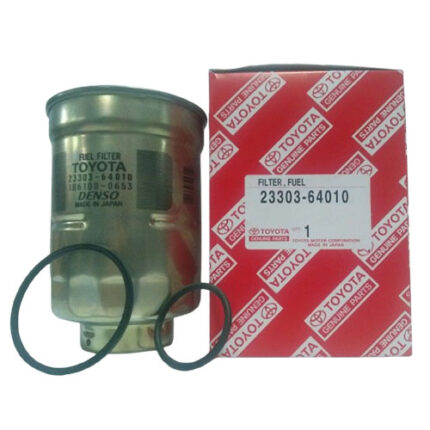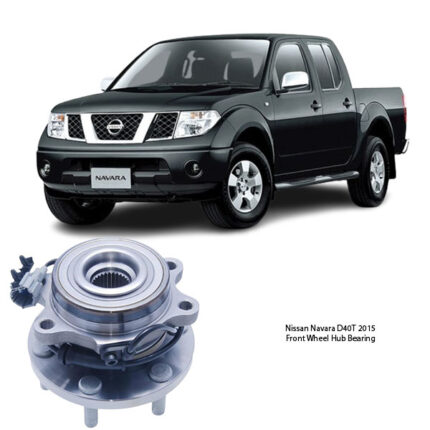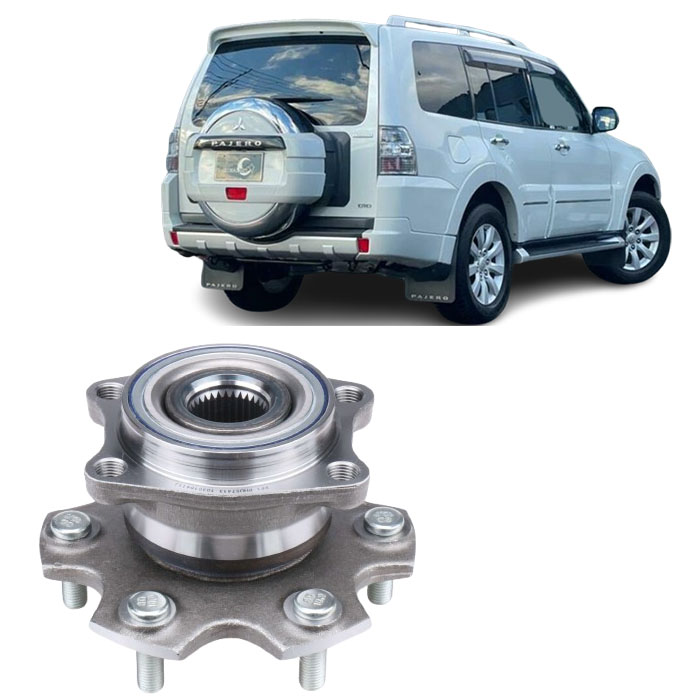Get Mitsubishi Pajero V98 PFI Rear Wheel Hub bearing in Kenya
The rear wheel hub bearing is a critical component of a vehicle’s wheel assembly, responsible for ensuring smooth rotation and stability. It connects the wheel to the axle and allows friction-free movement while supporting the vehicle’s weight. A faulty wheel hub bearing can lead to safety hazards, making it essential to understand its function, benefits, maintenance, and signs of failure.
What is a Rear Wheel Hub Bearing?
A rear wheel hub bearing is a set of steel balls or rollers enclosed within a metal ring, designed to reduce friction as the wheel rotates. It is housed in the wheel hub assembly, which is mounted on the rear axle. This component is responsible for smoother driving, proper wheel alignment, and load distribution.
Components of a Rear Wheel Hub Bearing Assembly
A typical rear wheel hub bearing consists of:
- Bearing Housing – The metal casing that encases the bearing.
- Inner & Outer Races – Grooved rings that hold the rolling elements (balls or rollers).
- Rolling Elements – Either ball bearings or tapered roller bearings that reduce friction.
- Hub Flange – The part where the wheel is mounted.
- ABS Sensor (if equipped) – Some modern wheel hubs include an ABS sensor that monitors wheel speed.
How the Rear Wheel Hub Bearing Works
The rear wheel hub bearing ensures smooth wheel rotation by reducing friction between the wheel and axle. Here’s how it works:
- Rotation and Support – As the vehicle moves, the hub bearing allows the wheel to rotate freely while bearing the vehicle’s weight.
- Load Distribution – It distributes the load from the road, preventing excessive stress on the wheel assembly.
- Absorption of Road Impacts – The bearing absorbs vibrations and road shocks, improving ride quality.
- Enhanced Stability – It ensures proper wheel alignment, reducing the risk of wobbling or instability.
Types of Rear Wheel Hub Bearings
There are different types of wheel hub bearings, each designed for specific vehicle applications:
1. Ball Bearings
- Most common type, used in passenger cars.
- Designed for low friction and high-speed rotation.
2. Tapered Roller Bearings
- Found in trucks and heavy-duty vehicles.
- Handle both radial (vertical) and axial (side) loads efficiently.
3. Sealed Bearings
- Pre-lubricated and sealed to prevent dirt and moisture contamination.
- Require minimal maintenance.
4. Wheel Hub Assemblies (Pre-assembled Units)
- Come as a single unit with integrated bearings and mounting hardware.
- Common in modern vehicles for easy installation.
Importance of Rear Wheel Hub Bearings
A properly functioning rear wheel hub bearing is essential for vehicle performance and safety. Here’s why:
1. Ensures Smooth Wheel Rotation
- Reduces friction, allowing the wheel to turn effortlessly.
2. Enhances Driving Comfort
- Absorbs road impacts, reducing noise and vibration.
3. Supports Vehicle Load
- Carries the vehicle’s weight and distributes it evenly.
4. Prevents Wheel Wobbling
- Maintains proper wheel alignment for stable handling.
5. Reduces Tire Wear
- Ensures even contact between the tires and the road, preventing premature tire damage.
6. Improves Braking Performance
- A worn-out bearing can affect braking efficiency, increasing stopping distance.
Signs of a Failing Rear Wheel Hub Bearing
Recognizing the early symptoms of a bad wheel hub bearing can prevent further damage. Watch out for these warning signs:
1. Grinding or Growling Noise
- Cause: Worn-out bearings create metal-to-metal contact.
- Sign: A humming, grinding, or growling noise from the rear wheel, especially at higher speeds.
2. Wheel Vibration or Wobbling
- Cause: Excessive bearing wear or damage.
- Sign: Steering wheel vibrations or unstable rear-end movement.
3. Uneven Tire Wear
- Cause: A failing hub bearing can misalign the wheel, leading to uneven tread wear.
- Sign: One side of the tire wears out faster than the other.
4. Loose or Wobbly Wheel
- Cause: A damaged bearing cannot hold the wheel securely.
- Sign: The rear wheel feels loose when shaken manually.
5. ABS Warning Light (If Equipped with ABS Sensor)
- Cause: A faulty bearing with an integrated ABS sensor may trigger the warning light.
- Sign: ABS light on the dashboard and possible braking issues.
6. Increased Fuel Consumption
- Cause: Excess friction from a damaged bearing makes the engine work harder.
- Sign: A noticeable drop in fuel efficiency.
Common Causes of Rear Wheel Hub Bearing Failure
Several factors can cause a wheel hub bearing to fail prematurely:
- Lack of Lubrication – Older non-sealed bearings require regular lubrication.
- Contamination – Dirt, water, and debris can damage the bearing.
- Excessive Load – Overloading the vehicle puts extra stress on the bearings.
- Impact Damage – Hitting potholes, curbs, or rough terrain can damage the bearing.
- Improper Installation – Incorrect torque or alignment can lead to premature failure.
Wheel Hub Bearing Maintenance Tips
Proper maintenance can extend the lifespan of rear wheel hub bearings:
1. Regular Inspection
- Check for noise, looseness, or uneven tire wear.
- Inspect the hub assembly for leaks or corrosion.
2. Keep Bearings Clean
- Avoid driving through deep water or mud, which can contaminate the bearing.
3. Follow Manufacturer’s Replacement Schedule
- Wheel bearings typically last 100,000 – 150,000 km.
- Follow your vehicle’s service manual for maintenance intervals.
4. Avoid Overloading
- Excess weight puts unnecessary strain on the bearings.
5. Proper Installation
- When replacing bearings, ensure proper torque and alignment to prevent uneven wear.
Rear Wheel Hub Bearing Replacement Guide
If a wheel hub bearing is damaged, it must be replaced immediately to prevent further issues.
Steps to Replace a Rear Wheel Hub Bearing:
- Lift the Vehicle & Remove the Wheel – Use a jack and secure the car with jack stands.
- Remove the Brake Caliper & Rotor – Unbolt the brake components to access the hub.
- Unbolt & Remove the Hub Assembly – Disconnect the old hub bearing from the axle.
- Install the New Hub Bearing – Secure it properly and torque the bolts to manufacturer specifications.
- Reassemble & Test Drive – Reinstall brake components, wheel, and test for noise or vibration.
Replacement Cost
- DIY Cost: $50 – $200 (parts only)
- Mechanic Cost: $250 – $600 (including labor)
Conclusion
The rear wheel hub bearing plays a vital role in vehicle safety, stability, and performance. Regular maintenance and early detection of failure symptoms can prevent costly repairs and ensure a smooth, vibration-free ride. If you experience grinding noises, wheel wobbling, or uneven tire wear, consider having your rear wheel hub bearing inspected and replaced if necessary.
By taking care of your wheel bearings, you enhance the longevity, fuel efficiency, and safety of your vehicle! 🚗💨
Follow us on Facebook for more parts.



